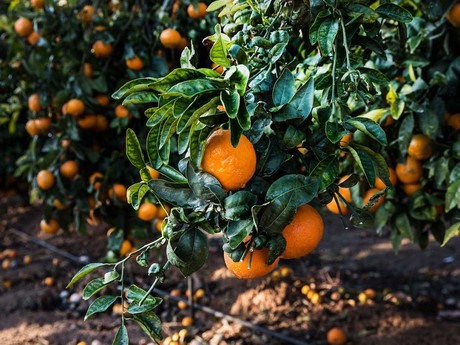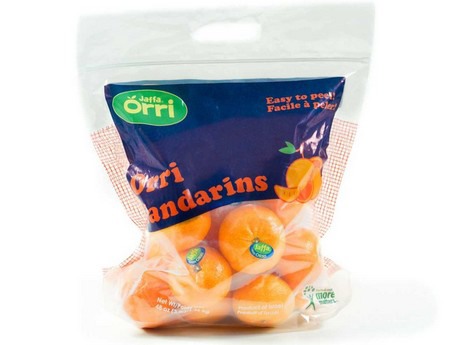As mandarin production in California starts to slow for the season, shipments of Israeli fruit have just begun to arrive on the East Coast for the US market.
The primary export mandarin from Israel is the Orri, a hybrid developed specifically to maintain flavor and integrity through the international supply chain. The first containers of the season arrived to specialty produce importer and wholesaler John Vena Inc. (JVI) in Philadelphia at the end of January.
“We’re very pleased with the quality of our first containers. The fruit is already eating better than any other citrus I have had in recent memory, and I have been handling Orri in particular for some years – more or less since the variety’s notoriety began to spill over from Europe,” reports JVI president John Vena. “We’ve already been getting Brix readings as high as 14. Luckily for anyone who loves citrus, shipments are anticipated to continue through May.”

This year was particularly unusual for members of JVI’s grower partner, Granot, a cooperative of 45 agricultural kibbutzim that has roots going back to the early 1940s. For reasons not yet understood, fruit across the country matured much more rapidly than anticipated, leading to a good supply of large fruit early in the season unlike any ever seen, the company said. The cooperative was packing fruit as early as mid-December, several weeks prior than projections estimated, and production saw record volumes of larger sizing with limited medium and small fruit in direct contradiction to the bell curve that typically characterizes the harvest.
Despite the atypical start, growers expect a particularly strong Orri crop for 2019 with consistent volumes and excellent quality. Smaller fruit has already begun to arrive and ratios are expected to normalize in the coming weeks, although large fruit packed in a bulk 10-kilogram value case, which is often favored in the ethnic retail segment, is anticipated to remain abundant for the season.
With smaller sizing picking up in volume, JVI has released an Orri stand-up pouch bag, which the company says gives retailers more flexibility for merchandising. Product is packed and re-graded on-site in Philadelphia. Plus, the bag’s breathable mesh maximizes shelf life in the back room, according to JVI. They added that the retail pouch is an excellent complement to bulk fruit.

The Orri is a mandarin meant to be merchandised alongside branded clementines or other specialty mandarin varieties such as tango. According to Emily Kohlhas, Director of Marketing at JVI, its flavor should be front and center. “The fruity flavor of an Orri is really second-to-none. If you’re looking for a super-sweet, snackable citrus with a little something extra, you’ve found your fruit.”
She recommends sampling Orri segments during hours with the heaviest volume of family shoppers for at least two weeks at the outset of the program. “Even offering a free piece of fruit for kids shopping with their parents at customer service alongside a small point of purchase display can really hammer the Orri home as a family-favorite. One taste and this fruit sells itself!”
In the foodservice segment, Emily reports that restaurants in the Mediterranean, Israeli, or Lebanese space may be particularly attracted to the Orri due to its provenance. “Beyond the origin tie-in, their firm segments hold up well in salads or savory dishes, while their potent sweetness and bold, not-your-typical mandarin flavor won’t get lost when juiced and used in vinaigrettes or marinades,” she says. “For cocktails, consider the seeded Ora variety, which can offer a cost savings but bring the same flavor.”
For more information:
Emily Kohlhas
John Vena, Inc.
Ph: +1 (215) 336-0766
[email protected]
www.johnvenaproduce.com
